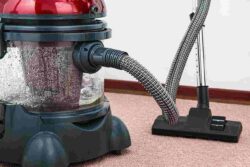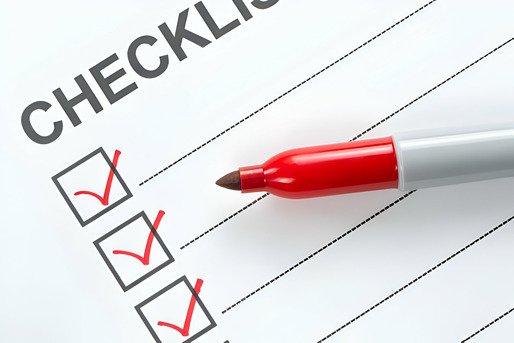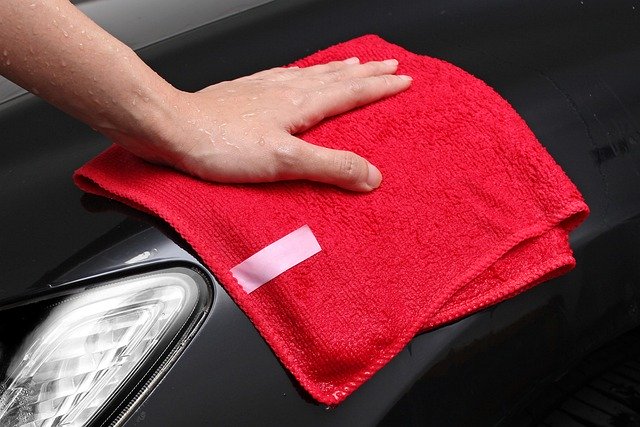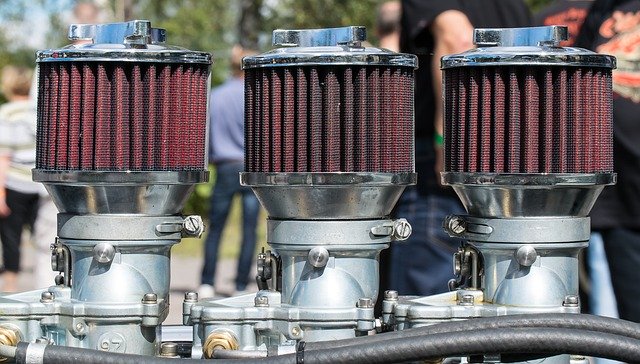Your home’s driveway is more than just a path to your front door; it’s an essential part of your property’s first impression. A clean and well-maintained driveway not only enhances the curb appeal of your home but also ensures safety and functionality. Over time, driveways can accumulate dirt, stains, cracks, and weeds, detracting from their appearance and, in some cases, causing structural issues.
To keep your driveway in top shape and make it an attractive asset to your home, regular cleaning and maintenance are essential. In this comprehensive guide, we will explore the tips and tricks you need to know to clean, maintain, and rejuvenate your home’s driveway, whether it’s made of concrete, asphalt, pavers, or gravel.
Why Clean and Maintain Your Driveway?
Before diving into the specifics of driveway cleaning and maintenance, let’s understand the importance of these tasks. There are several compelling reasons to prioritize the care of your driveway:
- Curb Appeal: A clean and well-maintained driveway significantly improves the overall appearance of your home. It sets the stage for the entire property, creating a welcoming first impression.
- Safety: Regular maintenance ensures that your driveway remains safe for both vehicles and pedestrians. Cracks, holes, and uneven surfaces can pose trip hazards and vehicle damage risks.
- Longevity: Driveways that are cleaned and maintained have a longer lifespan. Neglected driveways are more prone to damage and deterioration, leading to costly repairs or replacements.
- Value: An attractive and well-maintained driveway can increase the value of your property. It’s a feature that potential buyers notice and appreciate.
- Functionality: A clean and well-maintained driveway provides a smooth and safe surface for parking and vehicle maneuvering.
- Preventing Weeds and Stains: Regular cleaning helps prevent weed growth and removes unsightly stains caused by oil, grease, or other substances.
Driveway Types and Their Maintenance
Driveways come in various materials, each requiring specific cleaning and maintenance methods. Let’s explore the common driveway types and how to care for them:
1. Concrete Driveway
Maintenance:
- Regular Cleaning: Sweep or use a leaf blower to remove debris. Pressure wash your concrete driveway at least once a year to remove stains and dirt buildup.
- Sealing: Apply a concrete sealer every two to three years to protect the surface from water, oil, and UV damage.
- Crack Repair: Fill any cracks with a concrete patch or caulk to prevent them from expanding.
Cleaning:
- Pressure Washing: Use a pressure washer with a concrete cleaner to remove stains and debris. Be mindful of the pressure to avoid surface damage.
- Stain Removal: For oil or grease stains, use an absorbent material like cat litter to soak up excess oil. Apply a commercial concrete degreaser, scrub with a stiff brush, and rinse with water.
2. Asphalt Driveway
Maintenance:
- Sealing: Apply an asphalt sealer every two to five years to protect the surface from moisture and UV damage.
- Crack Repair: Fill any cracks with asphalt crack filler to prevent water penetration and further damage.
Cleaning:
- Sweeping: Regularly sweep the surface to remove loose debris and prevent it from becoming embedded.
- Pressure Washing: Use a pressure washer with a mild detergent to remove dirt and stains. Be cautious with pressure settings to avoid damaging the asphalt.
3. Paver Driveway
Maintenance:
- Weed Control: Regularly inspect and remove weeds that can grow in the gaps between pavers. Apply a weed killer or use polymeric sand to prevent weed growth.
- Releveling: Over time, pavers may settle unevenly. Relevel them by removing the settled pavers and adding or removing base material as needed.
Cleaning:
- Sweeping: Regularly sweep the surface to prevent the buildup of dirt and debris.
- Pressure Washing: Use a pressure washer with a mild detergent to clean the pavers. Avoid using excessive pressure to prevent damaging the grout or paver edges.
4. Gravel Driveway
Maintenance:
- Resurfacing: Periodically add fresh gravel to maintain an even and smooth surface.
- Weed Control: Regularly remove weeds and grass that may grow through the gravel. Consider using landscape fabric to inhibit weed growth.
Cleaning:
- Raking: Rake the gravel regularly to distribute it evenly and prevent ruts or depressions.
- Weed Removal: Hand-pull weeds that emerge through the gravel to prevent them from spreading.
Now that you have a general understanding of driveway maintenance, let’s dive into the step-by-step guide to cleaning and maintaining your specific driveway type.
How to Clean and Maintain Your Driveway: Step-by-Step Guide
Step 1: Clear the Area
Before beginning any driveway maintenance or cleaning, clear the area of vehicles, obstructions, and loose debris. This ensures a safe and effective work environment.
Step 2: Sweep or Rinse the Surface
Start by sweeping the surface to remove loose dirt and debris. If your driveway is heavily soiled, consider rinsing it with water to help loosen the dirt.
Step 3: Address Stains
Inspect the driveway for any stains, such as oil or grease. Apply an appropriate stain remover and follow the manufacturer’s instructions for treatment.
Step 4: Weeding
For driveways with gaps or gravel surfaces, inspect for weed growth. Remove weeds manually, and consider applying a weed killer to prevent further growth.
Step 5: Crack and Damage Inspection
Examine your driveway for cracks or damage. If you find cracks in a concrete or asphalt driveway, consider filling them with the appropriate sealant or filler. For more extensive damage, consult a professional.
Step 6: Pressure Washing
Pressure washing is a highly effective method for deep cleaning your driveway. Follow these steps:
- Rent or Prepare Pressure Washer: Rent a pressure washer or ensure that yours is in good working condition. Choose the appropriate pressure setting for your driveway type.
- Prep the Surface: Remove obstacles and cover nearby plants to protect them from the pressure wash.
- Apply Detergent: Use a driveway-specific cleaner or a mixture of water and a mild detergent. Apply the detergent to the driveway surface.
- Pressure Wash: Starting from one end of the driveway, use the pressure washer to clean the surface. Keep the nozzle a consistent distance from the driveway and maintain even strokes.
- Rinse: After applying detergent, switch to the rinse mode on the pressure washer to remove detergent and debris.
Step 7: Sealing (as needed)
Depending on your driveway type, apply a sealer to protect the surface:
- Concrete Driveway: Apply a concrete sealer every two to three years.
- Asphalt Driveway: Apply an asphalt sealer every two to five years.
Step 8: Releveling (for paver driveways)
If you have a paver driveway and notice uneven settling, remove the affected pavers, add or remove base material as necessary, and relevel the surface. Replace the pavers.
Step 9: Post-Maintenance Cleaning
After completing your driveway maintenance, give it a final rinse with a hose to remove any remaining debris or cleaning solution.
Step 10: Regular Maintenance Schedule
Establish a regular maintenance schedule for your driveway to prevent issues from accumulating. This may include periodic sweeping, weeding, or resealing, depending on your driveway type.
Tips and Tricks for Driveway Care
- Protect Nearby Plants: Cover or move nearby plants to prevent damage from pressure washing or cleaning chemicals.
- Use a Mild Detergent: When pressure washing or cleaning your driveway, opt for a mild detergent to avoid harming the environment and your driveway’s surface.
- Be Cautious with Pressure: When pressure washing, choose an appropriate pressure setting for your driveway type to avoid surface damage.
- Remove Stains Promptly: Address stains as soon as possible to prevent them from becoming more challenging to remove.
- Apply Sealer Regularly: Follow a consistent sealer application schedule to protect your driveway from moisture, UV damage, and stains.
- Address Cracks Early: Filling cracks in your driveway promptly prevents water from penetrating and causing further damage.
- Regularly Relevel Pavers: If you have a paver driveway, periodically check for uneven settling and relevel the pavers as needed.
When to Call a Professional
While many driveway maintenance and cleaning tasks can be handled by homeowners, some situations may require professional attention:
- Extensive or severe damage to your driveway, such as large cracks or sinking.
- If your driveway is made of a specialty material or design that requires expertise.
- For deep stains or chemical spills that are difficult to remove on your own.
- In cases where you lack the necessary equipment or experience to perform tasks safely.
Consulting a professional ensures that your driveway is properly maintained and repaired, protecting your investment and enhancing the value of your property.
Conclusion
Cleaning and maintaining your home’s driveway is an essential part of property care. It not only enhances the curb appeal of your home but also ensures the safety, functionality, and longevity of your driveway. By following the tips and tricks outlined in this guide and adhering to a regular maintenance schedule, you can enjoy a clean, well-maintained driveway that complements the overall beauty of your home.
Remember that each driveway type requires specific maintenance methods, so tailor your approach accordingly. Whether your driveway is concrete, asphalt, pavers, or gravel, the key to success is regular attention and proper care. So, roll up your sleeves and get ready to transform your driveway into an inviting and well-maintained feature of your home.














